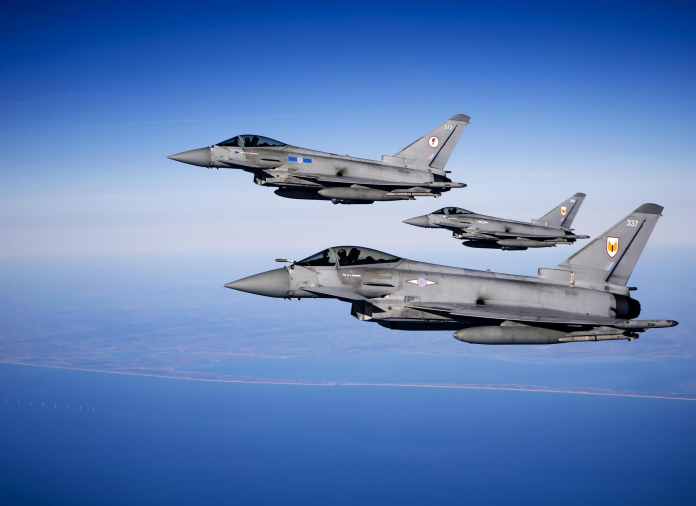The German government formally authorised the sale of Eurofighter Typhoon jets to Turkey, removing the final political obstacle to a multi-billion-pound defence agreement that strengthens NATO’s eastern flank amid regional instability, according to Yeni Şafak.
“I can confirm Defence Ministry sent a written confirmation to the Turkish government confirming export approval,” German government spokesperson Stefan Kornelius said.
This endorsement paves the way for Turkey’s acquisition of 40 advanced Tranche 4 Eurofighters, primarily manufactured in UK with German components.
The breakthrough follows a memorandum of understanding signed in Istanbul between Turkish Defence Minister Yaşar Güler and UK Defence Secretary John Healey. Described as a “big step towards a fully comprehensive agreement” by Güler, the pact recognises Turkey’s entry into the “Eurofighter Typhoon club” while reinforcing NATO’s collective deterrence capabilities.
UK Prime Minister Keir Starmer emphasised the agreement’s dual significance:
Signing a multi-billion export deal with Turkey … will bolster our vital defence industry … and keep us and our allies safer during these uncertain times.
The jets will enhance Turkey’s air defences amidst heightened regional tensions, particularly following Israel’s conflicts with Iran and Syria. Charles Woodburn, BAE Systems CEO, noted the agreement “underscores the importance of long-standing defence cooperation through NATO.”
Under the workshare arrangement, 37% of each aircraft will be UK-manufactured, including radar systems from Edinburgh and engines from Bristol.
The sale required unanimous approval from all four Eurofighter partner nations (Germany, UK, Italy, Spain). Germany’s initial reluctance stemmed from concerns over Turkey’s regional military activities and its acquisition of Russian S-400 missile systems, the same issue that led to Turkey’s expulsion from the F-35 programme in 2019.
Ankara continues parallel negotiations with Washington for 40 F-16s, while developing its domestic Kaan fighter slated for 2030 deployment.
Kornelius clarified that Berlin’s approval responds to a preliminary request from industry, with final implementation requiring Turkey’s formal order. Negotiations on technical specifications and pricing continue, with Turkish officials expected to submit a counterproposal to initial terms.
